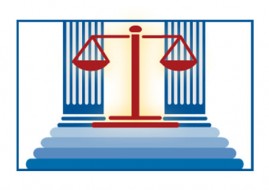Conflicts of Interest in Adoption Proceedings
By Ronald C. Minkoff [Originally published in NYPRR July 1999]
Every attorney knows the severe consequences of failing to recognize a conflict of interest between two current clients: the attorney may be disqualified from the case, may be denied her fees and may lose one or both of the clients. The consequences are even more severe in an adoption, where a lawyer’s ethical lapse can have an indelible impact on the future of the adoptive parents, the natural parents and, perhaps most poignantly, the adoptive child. A decision by Family Court Judge Rand, In the Matter of the Adoption of Brittany Kay, Slip Op., N.Y. Co., 5/7/1999, shows just how far reaching these effects can be.
Before describing the Brittany Kay decision and its implications, we will discuss the Disciplinary Rule governing concurrent client conflicts and how that rule generally has been applied in adoption cases.
In New York, a concurrent client conflict — when a lawyer simultaneously represents two clients with differing or potentially differing interests — falls under DR 5-105 of the New York Code of Professional Responsibility. DR 5-105 requires a lawyer faced with a potential conflict to engage in a three-step analysis.
Determining Whether Conflict Exists
First, the lawyer must determine whether a conflict exists. This will occur if either (1) the attorney’s “exercise of independent professional judgment” on behalf of one client “will be or is likely to be adversely affected” by representing — the clients “would be likely to involve the lawyer in representing differing interests.” [DR 5-105(A) and (B).]
Second, if a conflict does exist, the lawyer must determine whether it may be waived by both clients. Obtaining a waiver is permitted only if “it is obvious that the lawyer can adequately represent the interests of each” client. [DR 5-105(C).]
Finally, if the conflict may be waived, the lawyer may obtain the waiver only “after full disclosure of the possible effect of [the joint] representation on the exercise of the lawyer’s independent professional judgment on behalf of each.” [Id.]
The DR 5-105 standards have been applied carefully in New York State adoption proceedings, particularly in private placement adoptions, in which adoptive parents arrange directly with the natural parents to adopt a child. The natural parents must give formal consent to such an adoption, either directly before a judge [N.Y. Dom. Rel. Law §115-b(2)] or outside of court. In the latter instance, known as an extra-judicial consent, the consent must be in writing and it may be revoked by the natural parents within 45 days. [Id. §115-b(3)(a).] A revocation, however, is effective only if the adoptive parents do not oppose it. If they do oppose it, the court will hold a full blown hearing to determine if “the best interests of the child will be served by giving force and effect to such revocation.” [Id. §115-b(3)(b).]
Joint Representation Condemned
Signing an extra-judicial consent to an adoption is, in short, a serious act with serious consequences, one that requires careful thought and advice. The natural parents, however, are generally too poor and unsophisticated to retain their own lawyer. In practice, it is often the adoptive parents’ lawyer who steps in to explain to the natural parents the scope of the extra-judicial consent form and other adoption procedures. Courts in New York have repeatedly condemned this practice, ruling that DR 5-105 prohibits the adoptive parents’ lawyer from providing legal advice to the natural parents. [See, e.g., Matter of Michelman, 202 A.D.2d 87, 616 N.Y.S.2d 409 (2d Dept. 1994); Matter of Adoption of Anonymous, 131 Misc. 2d 666, 501 N.Y.S.2d 240 (Surr. Ct. Westchester Co. 1986).]
The American Bar Association has taken the same position. [See, ABA Informal Op. 87-1523 (1987), citing opinions of other states, including New York.] One New York court explained the rationale for this view:
“It is evident that an attorney for adoptive parents cannot be fully dedicated to achieving the goals of his clients and at the same time be relied upon to ensure that the natural parent’s relinquishment of her rights was knowing, intelligent and voluntary. Indeed, that attorney has, at the very least, a strong incentive to persuade her on behalf of his clients that surrender of the child is the best course of action.” [Matter of Adoption of Male Infant D, 137 Misc. 2d 1016, 523 N.Y.S.2d 369, 372 (Fam. Ct. N.Y. Co. 1987).]
Conflict Cannot Be Waived
Indeed, the simultaneous representation of natural and adoptive parents by the same lawyer creates such an obvious conflict that court decisions and bar association opinions have suggested that the conflict cannot be waived. [See, Adoption of Anonymous, supra, 131 Misc. 2d at 667, 501 N.Y.S.2d at 241, “a conflict always exists between the interests of the adoptive parents and the interests of the natural mother” (attorney’s explanation of dual role and its potential impact insufficient to vitiate conflict); see also, ABA Informal Op. 87-1523 (1987), “the inherent conflicts (between natural and adoptive parents) cannot be reconciled.”]
The court in Brittany Kay took the usual analysis one step further. There, natural parents Teresa and Paul, who lived in Nebraska, responded to an advertisement by pre-adoptive parents who were represented by New York attorney Lori Goldheim. After Goldheim sent the adoption papers to Nebraska, Teresa asked her if she should get an attorney; Goldheim referred her to Michael Washburn, a Nebraska lawyer who had worked with Goldheim on 87 other adoptions. Washburn met with Teresa a week before the birth for more than an hour, explaining the extra-judicial consent procedure but not showing her the form.
Teresa gave birth to Brittany on Aug. 6, 1998. She immediately began to have second thoughts about losing the baby to adoption. Nevertheless, Washburn appeared at the hospital that very same day, showed her the extra-judicial consent form for the first time, and demanded her signature. Teresa asked if she could wait one more day before signing. Washburn said “No, Lori Goldheim wants the papers signed today.” [Slip Op. at 5.] Teresa reluctantly signed the papers without reading them. Her husband never met Washburn and did not sign the consent form.
Natural Parent Changes Her Mind
Five days later, Teresa told Washburn that she had changed her mind. At that point, the baby was still in Nebraska, and Washburn could have sought a court order to prevent her from leaving the state. Instead, he did nothing, claiming he could no longer represent Teresa because he “would undoubtedly be a witness…if there was a change of mind case.” [Id. at 7.] He nevertheless called Goldheim to inform her of Teresa’s change of heart. The baby eventually was taken to New York by the adoptive parents. Teresa and Paul filed an application here to revoke their consent to the adoption. The baby remained with the adoptive parents until the court’s decision.
The court granted the application, ruling that Washburn had acted incompetently by failing either to advise Teresa of her available options or to seek the court order needed to prevent Brittany from leaving Nebraska. [Id. at 17–18.]
But the court went further, noting that Washburn, although supposedly representing just the natural parents, actually had a conflict of interest. Pointing to Washburn’s long-standing relationship with Goldheim, his successful effort (apparently on Goldheim’s behalf) to pressure Teresa into signing the extra-judicial consent at the hospital, and his phone call to inform Goldheim of Teresa’s change of mind, as well as other evidence, the court concluded that Washburn “did not adequately advise and represent the interests [of the birth parents] but acted as the expeditor of the pre-adoptive parent’s [sic] attorney,” Goldheim. [Id. at 17.] The court held that because Washburn never gave Teresa the independent legal advice to which she was entitled, Teresa could revoke her consent to the adoption. [Id. at 19.]
Courts Root Out Conflict
The Brittany Kay decision shows how far courts will go to root out conflicts of interest. Washburn never purported to represent the pre-adoptive parents, and never even spoke to them. Yet the court found him to be their lawyer, or at least an agent for their lawyer, and thus disqualified from representing the natural parents. This has far reaching implications for all referral arrangements, not just those in the adoption area: it implies that a lawyer may not alleviate a conflict between two actual or potential clients by referring one of them to another lawyer if the lawyer receiving the referral has too close a relationship with the referring lawyer or works too closely with her.
Washburn’s failure to recognize the conflict has had a devastating impact on all involved. Brittany has lost the only home she has ever known. The pre-adoptive parents have lost the child they have cared for since birth. The natural parents have had to travel 2,000 miles and spend almost a year vindicating their rights. Washburn and Goldheim have possibly forfeited their right to fees, and face serious potential malpractice liability, as well as potential disciplinary proceedings. One expects they will be more careful next time. We hope that other lawyers will take note.
Ronald C. Minkoff is a partner at Beldock Levine & Hoffman LLP, specializing in commercial litigation. He is Adjunct Asst. Professor at Brooklyn Law, and Chair, Committee on Professional Discipline of The Association of the Bar of the City of New York.
DISCLAIMER: This article provides general coverage of its subject area and is presented to the reader for informational purposes only with the understanding that the laws governing legal ethics and professional responsibility are always changing. The information in this article is not a substitute for legal advice and may not be suitable in a particular situation. Consult your attorney for legal advice. New York Legal Ethics Reporter provides this article with the understanding that neither New York Legal Ethics Reporter LLC, nor Frankfurt Kurnit Klein & Selz, nor Hofstra University, nor their representatives, nor any of the authors are engaged herein in rendering legal advice. New York Legal Ethics Reporter LLC, Frankfurt Kurnit Klein & Selz, Hofstra University, their representatives, and the authors shall not be liable for any damages resulting from any error, inaccuracy, or omission.
Related Posts
« ABA Commission: Change Fee-Sharing Rules Lawyer’s Incivility Provokes Three-Month Suspension »








